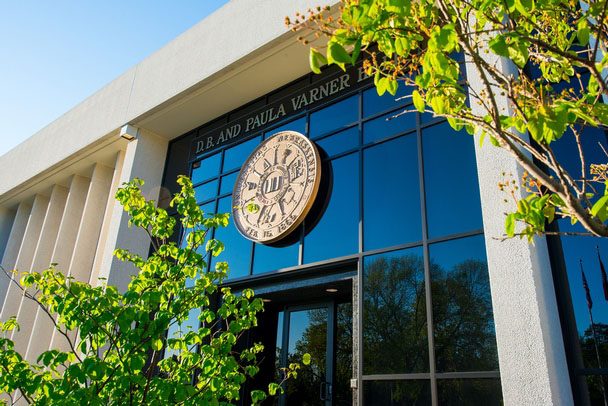The University of Nebraska Board of Regents on Thursday approved a tuition increase averaging 5% and additional budget reductions for the 2025-26 fiscal year, actions NU President Jeffrey P. Gold, MD, described as necessary steps to preserve the university’s quality, accessibility and long-term financial health.
In remarks delivered during the board’s meeting at Varner Hall, Dr. Gold underscored the university’s responsibility to be a prudent steward of state and university resources — while remaining firmly committed to its land-grant mission of providing an outstanding, affordable and accessible education for students across Nebraska and beyond.
“These decisions are not made lightly, particularly from my personal perspective as a first-generation college student,” Dr. Gold said. “But they are required if we are to maintain the academic quality, opportunity and excellence Nebraskans expect and deserve.”
The approved budget includes more than $20 million in additional cuts, in addition to the tuition adjustment. The budget actions follow a legislative session in which the university received modest funding increases that do not fully cover inflationary pressures, rising employee benefit costs or strategic investments.
Dr. Gold noted that even with the tuition increase, the University of Nebraska will remain among the most affordable institutions in its Big Ten and national peer groups.
Throughout his address, Dr. Gold highlighted recent successes across the NU system, emphasizing how these achievements align with the university’s newly adopted five-pillar strategic plan focused on teaching, research, engagement, culture and stewardship.
Among the milestones shared:
- 7,261 degrees awarded this spring across the four campuses, powering Nebraska’s workforce and communities.
- The grand opening of the Catalyst building in Omaha, a public-private development to foster innovation in health care and biomedical research.
- A privately funded expansion of UNO’s Biomechanics Research Building, further advancing Nebraska’s global leadership in human performance and health science.
- Major athletic achievements, including conference titles and postseason appearances, underscoring the impact of student-athletes both on the field and in the classroom.
- Selection of Neal Schnoor, PhD, as the priority candidate for chancellor of the University of Nebraska at Kearney. Dr. Schnoor’s appointment was formally approved by the board during Thursday’s meeting.
“These achievements — academic, research and athletic — are a reflection of the excellence we strive for and achieve in every corner of our university,” Dr. Gold said. “And they come at a time when we must also navigate complex fiscal realities with discipline, care and a shared sense of purpose.”
Dr. Gold emphasized that every budget decision is being made through the lens of the university’s strategic plan, approved by the board earlier this year. He pointed to ongoing efforts to streamline operations, improve efficiency and align academic offerings with student and workforce needs — including proposals before the board to create new degrees in robotics engineering and multidisciplinary studies.
“This is what strategic planning looks like in action: investing where the need is greatest, cutting where we must and always keeping our mission front and center,” Dr. Gold said. “With a clear plan, a unified team and a shared sense of purpose, I have no doubt the University of Nebraska will continue to thrive — and continue to be one of our state’s greatest assets.”
In other news, the board:
- Approved the establishment of the Diabetes Center of Excellence in Diabetes Care, Research and Education, administered by the UNMC College of Medicine at the UNMC Omaha campus.
- Approved the establishment of the undergraduate Bachelor of Science in Robotics Engineering offered by the College of Engineering at the University of Nebraska-Lincoln.
- Approved the establishment of the undergraduate Bachelor of Arts and Bachelor of Science in Multidisciplinary Studies offered by the College of Arts and Sciences at UNL.
